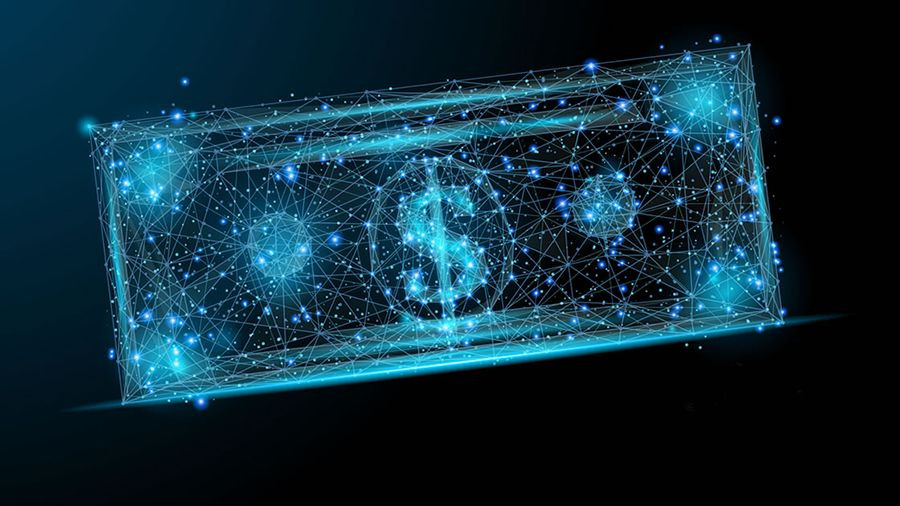Officials of the Federal System did not delay and took a key step in the history of creating their digital currency. According to representatives of the institution, this will help ensure the dominance of the US dollar in the world market. The growing cryptocurrency market has had an impact, with which the central bank is struggling hard. Digital currencies of other countries will also compete.
The fate of the digital dollar for the next five years has been decided
At first glance, the central bank did not make firm conclusions about whether the issue of such a currency was reasonable, and in any case, stated that it did not intend to act without the support of the White House and Congress. So it is unlikely that the digital US dollar will be released in the near future.
However, note that the 35-page minutes of the meeting on the government-backed digital coin (known as CBDC) marks the Fed's most important action as it seeks to delve deeper into digital assets. In addition, the outcome of the meeting came down to a statement that the monetary policy authority prefers that legislators adopt a separate law allowing the currency.
"The introduction of CBDC will represent a very important innovation in American money," the Fed document says.
The Fed will continue to collect information from public organizations on this issue. The central bank also outlined several potential advantages of the US-backed coin, including the need for the dollar to remain the dominant currency in the international financial system. Representatives also said that CBDC can improve cross-border payments, increase financial accessibility and simplify the use of the dollar in new technologies.
However, the central bank also warned of possible negative consequences, including an outflow of deposits from traditional banking systems and an increase in the likelihood of a more serious raid on financial firms. Privacy is also becoming a cornerstone since the government can have direct access to the transactions of individual citizens.
The report provides few details on how these controversial issues can be resolved and say that the Fed "needs to find an appropriate balance between protecting consumers' privacy rights and ensuring transparency necessary to deter criminal activity."
In addition, the infrastructure of this new system can become a tempting target for hackers. Thus, the Fed's CBDC protection could be "particularly challenging," the report says because it would have "more entry points than existing payment services."
A Fed official told reporters that the central bank will evaluate the next steps after the deadline for comments. However, he did not name the start date of the program.
The most interesting and frightening point of the future strategy is the possibility of participation of companies that are not banks. Thus, the Fed representatives noted that the authority is likely to rely on intermediaries from the private sector, which may be traditional lenders or non-banking institutions, to offer accounts and facilitate CBDC payments, rather than taking on this role.
This is probably one of the most controversial points in the protocol, which, when implemented, can have serious consequences for the dollar and, ultimately, the national security of the United States.
However, in general, the document is the result of Chairman Jerome Powell's decisive turn towards a deeper involvement in digital payment systems in May. A separate document on the technology that can manage the central bank's digital currency is expected from the Boston Fed in February. The latter is necessary because central banks around the world, primarily the People's Bank of China, are rushing with their digital currencies.
Recall that China launched a pilot project of the digital yuan this year and is expected to announce its use at the Winter Olympic Games in Beijing in February. Some experts say that China and other countries that were the first to adopt digital currencies may set standards for other countries, partly because the digital currency systems of different countries will eventually have to coordinate cross-border payments.
This could make the Fed's research important even if the digital US dollar is not launched for many years, as many countries will seek to adapt their systems to integrate with the US.
However, if the yuan takes the lead, and it does, it is more likely that the dollar will have to "catch up", adjusting to existing payment systems, and this will also negatively affect the status of the dollar as a world currency. The greenback may lose this status in two years.
Meanwhile, in the absence of a digital dollar issued by the Fed, private companies have launched their version in the form of stable coins that contain reserves designed to enable the exchange of coins for fiat currency on a one-to-one basis.
It seems that this practice was made possible by the crypto market and, in particular, Defi (a system of decentralized financing on the blockchain). However, unlike the latter, the "stable coins" of companies are deprived of the advantages of the blockchain, such as the guarantee of anonymity and the highest priority of data security. Without state control of reserves, which, however, has its limits, the estimated value of such "stable coins" is questionable. Nevertheless, the phenomenon exists, and before the first serious thefts, it is quite part of the market.





















